Nomad Journal 4
Fatih and Aksaray
4/8/20256 min read
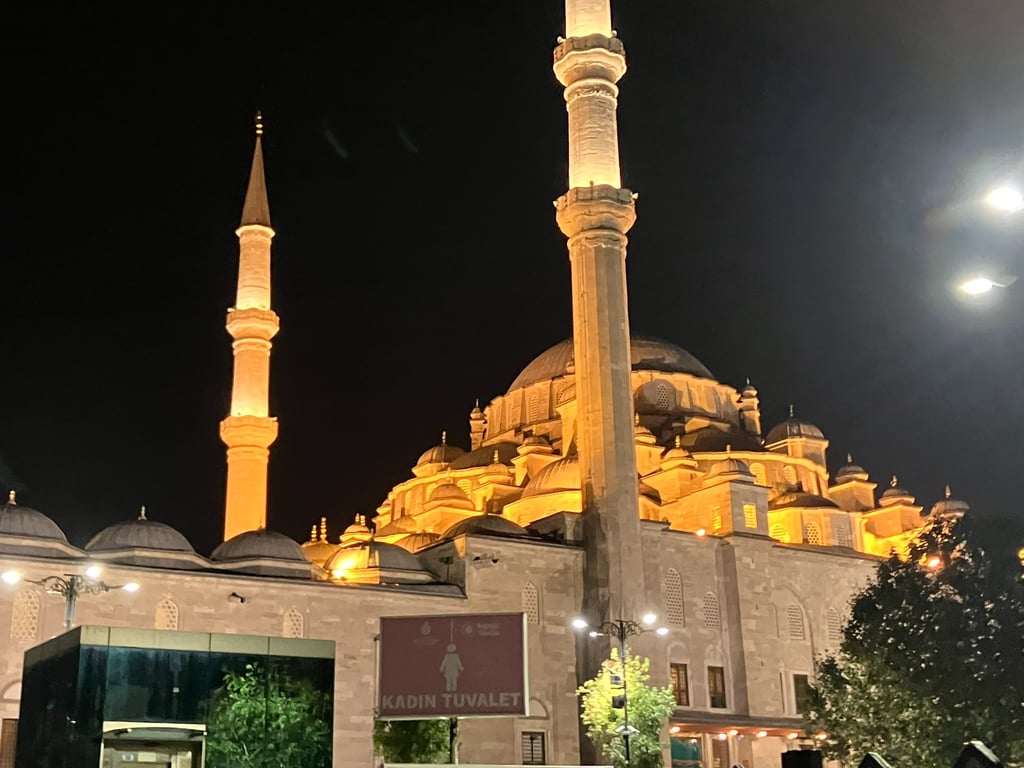

بِسْمِ ٱللَّٰهِ ٱلرَّحْمَٰنِ ٱلرَّحِيمِ
We started our journey by hopping on the T1 tram from our place in central Istanbul and heading toward Aksaray Station. We had heard from a friend that Aksaray is one of the best places in the city to exchange dollars, and since we needed some cash, it seemed like the perfect excuse to explore the area.
Stepping off the tram at Aksaray, we were immediately hit with the energy of a bustling commercial district. The streets were alive with activity—people buying and selling everything from clothing to electronics, spices to street food. This area is packed with small businesses, many of them family-owned, offering a wide variety of products at more affordable prices than you'll find in more touristy areas like Sultanahmet or Taksim.
If you need to do any shopping while in Istanbul, Aksaray is a great choice. Prices are generally fair, and you can negotiate—a part of the local culture that’s fun once you get the hang of it. The shops feel more local and less commercialized, which adds to the authenticity. Whether you're looking for modest clothing, Islamic books, prayer mats, or even mobile accessories, you're bound to find it here.
What makes Aksaray even more special is that it's culturally diverse and often overlooked by tourists, making it a hidden gem for Muslim travelers who want to experience the city beyond the postcard spots. After exchanging our currency at one of the many competitive exchange offices, we made our way toward one of the area's historical spiritual treasures—Pertevniyal Valide Sultan Mosque.
Pertevniyal Valide Sultan Mosque
Tucked right near the Aksaray Metro Station, the Pertevniyal Valide Sultan Mosque stands as a beautiful example of 19th-century Ottoman architecture. Built in 1872 by order of Sultana Pertevniyal, the mother of Sultan Abdulaziz, the mosque reflects a unique architectural blend—Ottoman with touches of Gothic, Baroque, and Moorish influences. It’s an elegant structure that catches your eye even from afar, with its intricate façade and peaceful courtyard.
As one of the last imperial mosques built in the Ottoman era, it’s more than just a place of prayer—it’s a living symbol of Istanbul’s dynastic past. The mosque can accommodate up to 2,000 worshippers, and it was already filled with locals when we arrived for Zuhr prayer. The inside is serene, adorned with beautiful calligraphy and soft carpets.
Once we finished at Pertevniyal Valide Sultan Mosque, we got back on the tram and continued west along the T1 line. The next stop after Aksaray is Fındıkzade, and from there, it’s about a 20-minute walk to Fatih Mosque (Fatih Camii). Fair warning—much of it is uphill, but it’s absolutely worth it.
One of the best parts of being in Istanbul is that walking is part of the adventure. Every street offers something new—whether it’s a small shop selling handmade items, a street vendor grilling corn, or an old man pouring tea into tulip-shaped glasses. We took our time, stopping here and there to soak in the street life, browse the stores, and just enjoy the rhythm of the city.
By the time we reached Fatih Mosque and after that walk there was one thing on our mind - food! Just outside the main gate of Fatih Mosque, there’s a small shawarma spot that has officially earned the title of our favorite place to eat shawarma in Istanbul. If you're ever in the area, don’t miss their shawarma plate with garlic sauce—a flavor explosion that hit the spot after our uphill trek. They also serve crispy fried chicken, which quickly became another favorite.
With our hunger satisfied and energy restored, we headed into the mosque complex to explore what is arguably one of the most important Islamic landmarks in the city.
Fatih Mosque: A Spiritual and Historical Masterpiece
The Fatih Mosque (Fatih Camii) isn’t just a beautiful place of worship—it’s a cornerstone of Islamic history. Built in 1470 by Sultan Mehmed II, better known as Mehmed the Conqueror or Fatih Sultan Mehmet, the mosque was constructed only years after the historic conquest of Constantinople in 1453.
What makes this site even more significant is that it was built over the ruins of the ancient Church, symbolizing the transformation of the city into a thriving Islamic capital. The mosque was designed by the celebrated architect Atik Sinan, and though it has been rebuilt and restored over the centuries (especially after an earthquake in the 18th century), it still retains its imperial grandeur.
Today, Fatih Mosque can accommodate up to 10,000 worshippers and continues to serve as a vital hub for prayers, Friday sermons, and Islamic festivals. The interior is breathtaking—a harmonious blend of marble, stained glass, and calligraphy, with a sense of stillness that invites reflection. We spent quite a while sitting quietly inside, just absorbing the beauty and tranquility.
A Prophetic Legacy at the Mosque Entrance
One of the most spiritually moving moments of our visit came as we stood before the main entrance of the mosque. Carved above the doorway are a few blessed hadith from our beloved Prophet (peace be upon him) translated close to the meaning, Allah SWT knows best:
"Whoever builds a mosque for the sake of Allah, Allah will build for him a house in Paradise." (Sahih al-Bukhari & Sahih Muslim)
“Verily, you shall conquer Constantinople. What a wonderful leader will her leader be, and what a wonderful army will that army be.” (Musnad Ahmad, Mustadrak al-Hakim)
This prophecy was realized by Sultan Mehmed II at just 21 years old when he led the successful conquest of Constantinople. His vision, leadership, and unwavering faith marked a pivotal moment in Islamic history—and he is buried in a türbe (mausoleum) right next to the mosque he commissioned. It is said that his mother used to hold him outside the walls when he was a baby and prayed that her son would be the leader to conquer the sort after city. The army itself was made up of many hufaaz and ulema.
Exploring the Fatih District: A Hub of Islamic Culture
Surrounding the mosque is the Fatih district, named after the mosque and its patron. This area is deeply rooted in Islamic tradition, with numerous madrasahs, Islamic bookstores, halal restaurants, and tea houses. The streets are full of life—families enjoying the day, children running around, and the occasional call to prayer echoing through the air. It felt like a part of Istanbul that still held tightly to its Ottoman soul.
Historically, the mosque complex included not only the main prayer hall but also schools, a hospital, a library, and a caravanserai. Many of these buildings still exist in some form, making the area a living museum of Islamic civilization. We ended up spending the rest of our day in Fatih, wandering through the streets, and enjoying the gardens. What started as a day trip quickly turned into a memorable experience.
On future visits to Istanbul, we actually chose to stay in Fatih rather than the more touristy parts of the city. Here’s why: everything is cheaper, there are fewer tourists, and it’s family-friendly with no bars or alcohol in sight. For Muslim families and solo travelers alike, this is one of the best places to base yourself if you're looking for a more halal-conscious and spiritually grounding experience of Istanbul.
If you’re staying farther out, just remember that the T1 tram runs until 11 PM, so plan your trip accordingly. But whatever you do, make sure to include Fatih Mosque on your Istanbul itinerary—not just to admire the architecture and enjoy the food, but to truly feel the depth of Islamic history and faith that lives on in every corner of this beautiful area.
Nomad Links
Flights: Google Flights
Stays: Trip.com
VPN Routers: GL.iNet GL-MT6000 - GL.iNet GL-AXT1800 - Tenda AX3000 WiFi Router
VPN Services: SurfShark, NordVPN
Temu: Temu App Download
Esim: AloSIM
Airport Transfers: Trip.com
Car Rental: Qeeq.com
Full Product Recommendation Page
Please see our list of blogs to learn more, and you can contact us directly at muslimfamilynomad@gmail.com for any questions and even set up a consultation.
** Disclaimer: We are compensated for some of the links provided in this article if you purchase something, but we only recommend what we have used and found successful or we have done some research to find. This blog should not be used as financial advice and we are not travel agents, we are just letting you know our opinions from real life experience. May Allah bless you and your family on your travels!
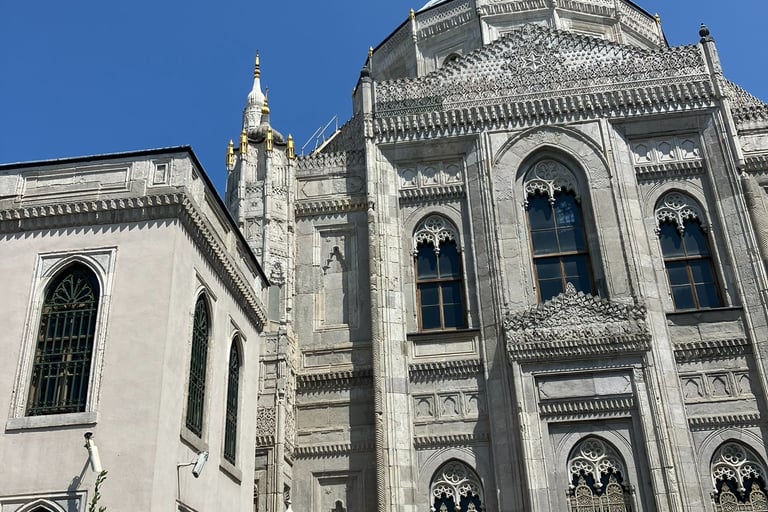

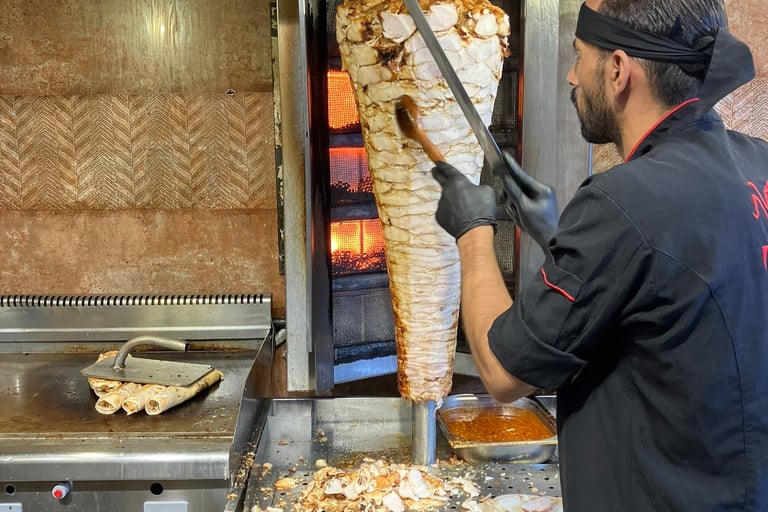

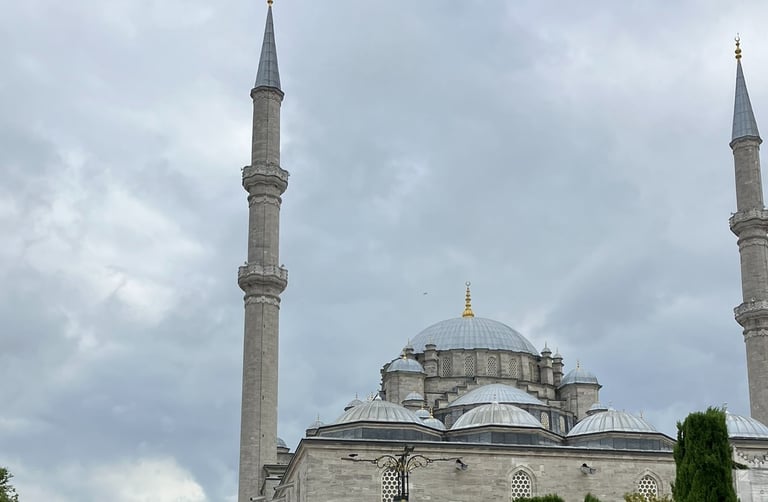

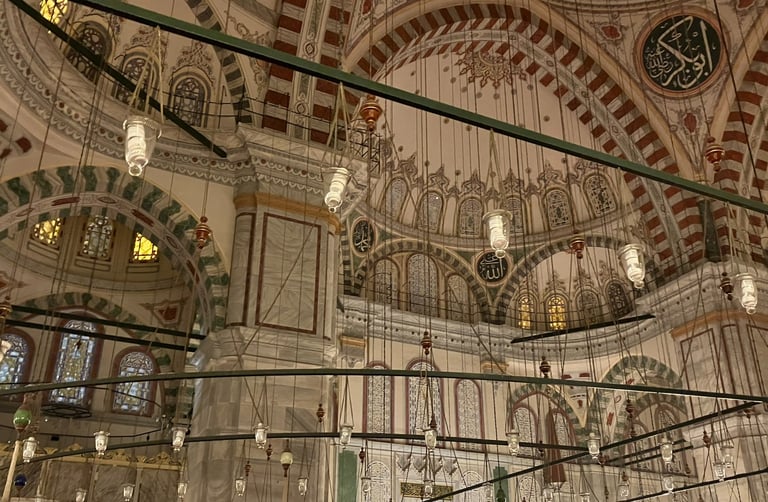

Muslim Family Nomad
Discover tips for Muslim-friendly travel experiences.
Stay in Contact
© 2025. All rights reserved.
